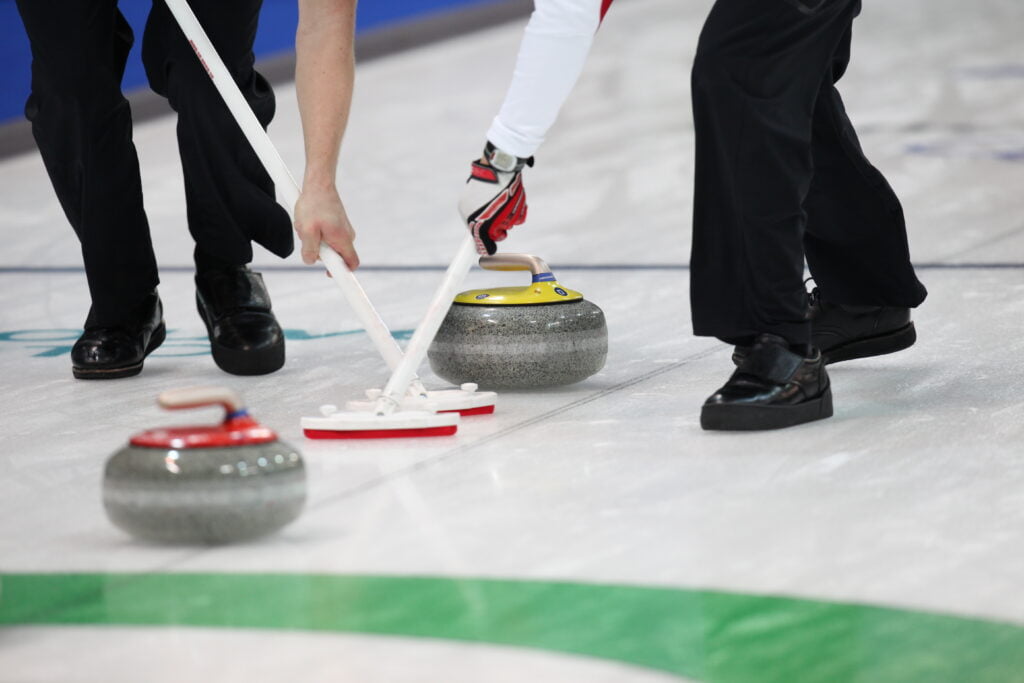Why the “Spirit of Curling” would help many companies

Do you know curling? Even in the few countries where curling is played professionally, this question is usually met with a shake of the head or an amused comment: “Those are the ones scrubbing the ice with a broom, it looks really funny, but pretty weird…”
The world championships recently took place in Canada and Switzerland respectively. Anyone who has ever watched an entire game for hours and witnessed a millimetre decision on the last stone (after around 160 stones have been played) knows that there is a lot behind it. Speed, the small rotation, a precise sense of proportion, maximum concentration, assessing the constantly changing ice conditions, intensive teamwork, brute strength paired with a sure instinct, timing, the meticulously practised allocation of tasks and roles — and last but not least the broom, which has to get the stone to the finish line with the right trajectory, the exact speed and the drift (curl) — and which can make the difference between victory and defeat. There are also tactics, dealing with pressure, intensive teamwork and much more.
Many companies would consider themselves lucky to have employees with such a mix of skills. But a closer look reveals some additional and less obvious behaviours. The players communicate with each other constantly, usually calmly and clearly, interrupted only by the slightly louder shouts from the other end of the ice field so that the necessary corrections by the wipers can be heard at all.
It is a highly focussed, respectful and friendly interaction — both with each other and with the opponent. And if the World Cup medal has just been lost by a centimetre, the opponent’s hand is shaken appreciatively. A professionalism that I would wish for in many collaborative situations in everyday working life. This special atmosphere is shared by young and old, amateurs and professionals alike. And it is precisely this spirit that fascinates me.
It exists, this “code”, and it is simply called the “Spirit of Curling.” This is an official addition to the rules of the game and reads like a guide to fair play with rules of decency, once laid down by the Canadian Curling Association. It is a matter of course for all curlers worldwide to abide by these rules.
A curler…
… always behaves decently and courteously.
… plays to win, not to humiliate his opponent.
… will never try to distract his opponent or prevent him from doing his best.
… will never try to gain an advantage by any means other than the possibilities offered by the game.
… must first learn to lose, only then is he worthy of winning.
… prefers a defeat to an unfair victory.
… never deliberately breaks the rules of the game or any of the written traditions.
… will never do anything that he does not expect from his fellow players.
… always decides in favour of his opponent in disputes.
… appreciates and recognises a good performance by his opponent.
… does not criticise or insult his teammates or opponents.
… always concentrates on the game and always gives his best.
… who makes a mistake is the first to admit it.
… who touches or overslides a running stone, announces this immediately.
… invites his direct opponent for a drink when he has won.
… will never take advantage of an invitation to order expensive drinks.
… always behaves in a fair and sporting manner.
That may sound a little idealistic or old-fashioned — really? What is possible on the ice around the world should also be possible in small teams and companies. For my part I enjoy working in such a respectful atmosphere. Let’s take a little of this spirit with us into our everyday lives and professionalise ourselves not only in the matter at hand, but also in our dealings with one another.

